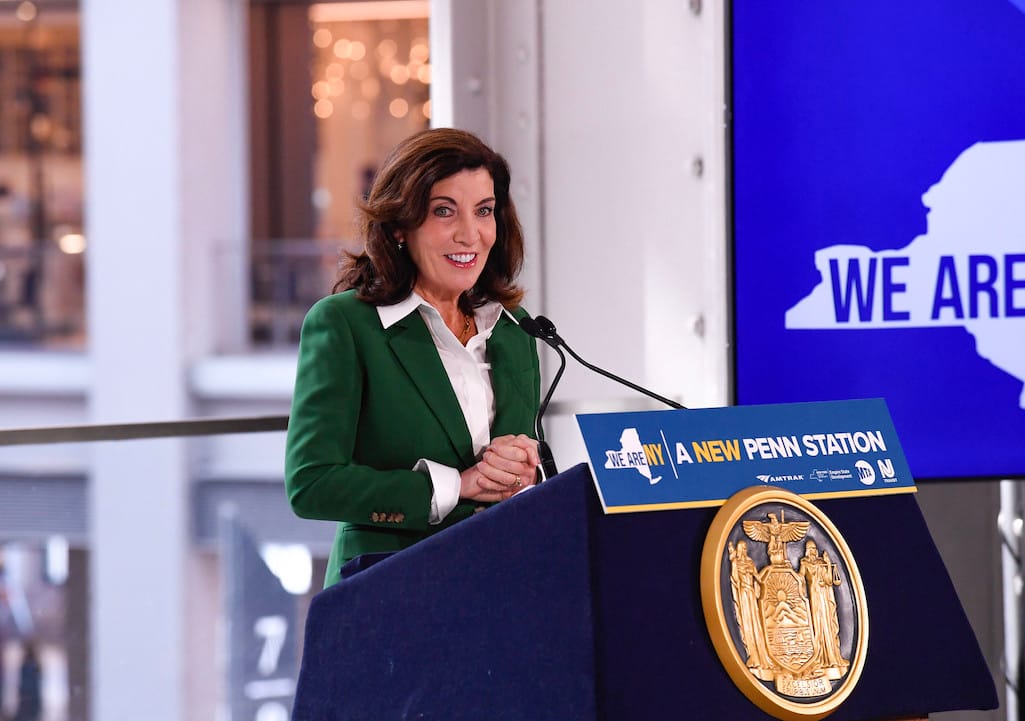Concern About Digital Discrimination Rules, Governors Call for ACP Funding, Newark Benefits from ACP
Industry associations are not happy about the FCC’s new digital discrimination rules.
Hanna Agro

November 16, 2023 – The Federal Communications Commission’s decision Wednesday to impose strict oversight over claims service providers are discriminating in certain parts of the country has irked industry associations.
The new digital discrimination rules allow the FCC to address alleged discriminatory practices, which it defines as ones that differentially impact peoples’ access to broadband based on factors such as race, ethnicity or income level.
NCTA, the Internet and Television Association, said in a press release Wednesday that deployment business practices, such as credit checks and uniform pricing deposits for equipment, will impact people with different income levels, which they now fear will be seen as unlawful.
NCTA added that the approval of these new rules will “distract the FCC from combatting true digital discrimination and will hurt our national effort to deliver high-speed internet to all Americans and continue to roll out innovative broadband services.”
Grant Spellmeyer, CEO of America’s Communication Association Connects, echoed the concern in a press release Wednesday stating it expects the proposed rules to deter investment, innovation and deployment while doing little to address digital discrimination.
Spellmeyer added that these rules will be particularly hard for smaller providers to navigate, which could have them taking on additional legal bills and compliance costs.
Smaller providers may especially struggle to navigate the rules if the FCC is watching their decision-making so closely, which could have them taking on legal bills and compliance costs, added Spellmeyer.
The new set of rules does make note of the fact that the FCC will consider legitimate financial or logistical barriers to deployment on a case-by-case basis as a defense for companies who face discrimination complaints.
Governors urge ACP funding in letter
In a bipartisan signed letter sent Monday, 26 governors including Kathy Hochul, D-New York and Spencer Cox, R-Utah, urged Senate leaders to continue funding the Affordable Connectivity Program.
The letter sent Monday underscores the program’s scope of importance and is calling on collective efforts to develop a funding plan to continue the program with the signatories promising to work toward a “commonsense solution.”
“Preserving the ACP will allow us to build upon the progress we’ve made in expanding connectivity rather than falling behind in a mission we cannot afford to lose,” reads the letter.
The $14-billion program, which subsidizes monthly broadband costs for eligible Americans at $30 and $75, is expected by some to run out of money in 2024, leaving more than 20 million Americans at risk of losing that connectivity.
That concern has prompted President Joe Biden and industry experts to call for more funding.
Newark connects over 31,000 households to the internet through ACP
Economic development agency Invest Newark and the non-profit Newark Alliance announced Thursday that more than 31,000 households in Newark now have access to high-speed internet as a result of the Affordable Connectivity Program.
The groups added that this scope of connectivity is collectively saving families in Newark almost $1 million per month when it comes to internet spending.
The digital divide in Newark stems from a lack of access to broadband and lessened broadband deployment, with nearly one in five Newark households living without internet, explained a press release, citing US 2021 census numbers.
“The city of Newark is pursuing a series of initiatives to support broadband access and adoption – enabling residents to work from home, complete schoolwork and online courses, attend telehealth appointments and more,” said Invest Newark CEO Marcus Randolph in the release.
He added that promoting enrollment in ACP is one of the ways in which they hope to support internet access, with nearly half of Newark households being eligible for it.
Connect20 Summit
Connect20 Summit









Member discussion